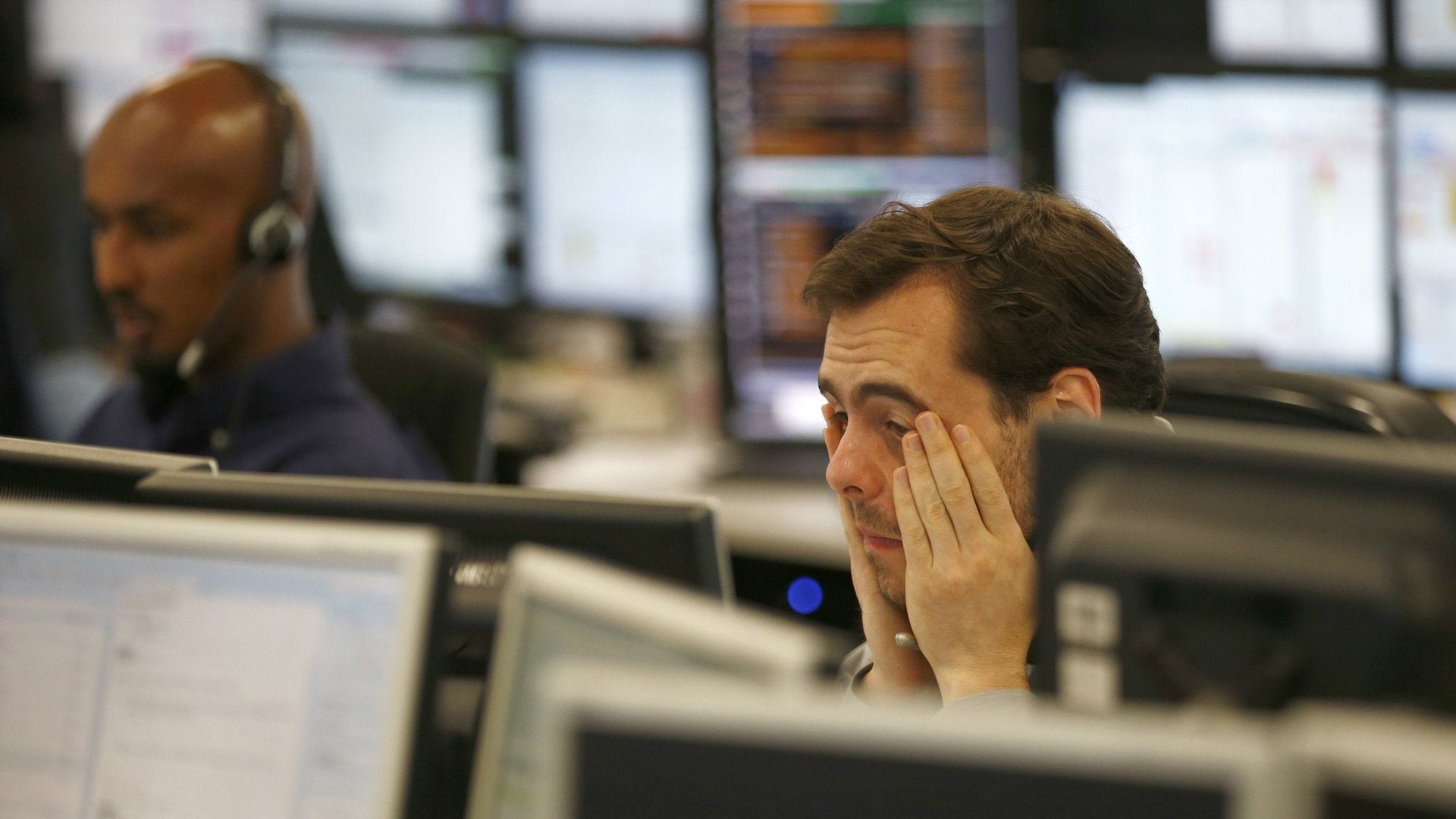Deutsche Bank has studied the last 35 years and says the next 35 don’t look so good
European stocks are falling and emerging market shares are having their worst day since the UK’s Brexit vote. Bond prices are falling, as investors seek other places for their money. And oil is at a measly $46 a barrel. But Deutsche Bank has more bad news.


European stocks are falling and emerging market shares are having their worst day since the UK’s Brexit vote. Bond prices are falling, as investors seek other places for their money. And oil is at a measly $46 a barrel. But Deutsche Bank has more bad news.
Analysts at the German bank say we are at the start of a new economic super-cycle, driven by demographic changes, which will be characterized by low growth, high debt, and higher inflation. “A challenging few decades likely awaits us,” Jim Reid, Nick Burns and Sukanto Chanda wrote in a report published Sept. 8.
Over the past 35 years the freer movement of people and labor, plus a surge in the working-age population, have made for a fast-growing and increasingly globalized economy. But in the future years, not only will some of the largest countries experience slower population growth; there will be big declines in the working-age population. By 2050, the number of people aged 15 to 64 in Europe will plummet 18%, and economic growth rates for the next 35 years will be lower than they were before the 2008 financial crisis, Deutsche predicts.
There’s a small silver lining here, in that fewer workers should mean higher real wages. However, this would also increase inflation. And if governments and central banks take even more drastic measures to boost growth, such as helicopter money (paywall)—the direct injection of cash to the general public—then inflation will almost certainly accelerate.
This is all particularly bad news for investors in government bonds. They should expect negative real returns over the next few decades, Deutsche Bank says.
That’s bad news for a lot of asset managers, who are already struggling with low returns. Investor Jeffrey Gundlach warned last week they were better off putting their money in cash. It’s an especially severe problem for pension funds, which tend to invest heavily in bonds and are already facing large deficits.
We can also expect less international trade—which is already stagnating—and more efforts by governments to control the flow of capital, the analysts wrote. This will happen as politicians react to the growing anger of people who have lost jobs or seen their wages stagnate as a result of globalization.
While the global economy might adjust naturally to these demographic changes, Deutsche Bank doesn’t think there’s enough time for this to happen.
It seems the status quo can’t hold for much longer. Monetary policy can’t be used as the predominant policy tool to the exclusion of the alternatives. Inequality surely can’t continue much further without a political backlash. Globalization and perhaps free movement/immigration can’t continue in its current form without a similar such social/political response.
Correction: An earlier version of this story said that rising bond yields (or falling prices) were a sign of investors fleeing to safety, which is incorrect.